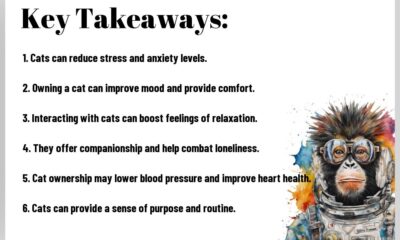Health & Society
What goes on in the head of a mythomaniac
Sometimes it is difficult to distinguish a person who frequently lies from one who suffers from mythomania
Everyone has lied at some point. This is an undeniable fact. In fact, although honesty is considered the highest moral value, it is possible that lying is accepted in some situations. You can lie to avoid revealing a surprise party or get rid of someone who will only bring unhappiness into your life, for example. But what about people who lie for no reason?
Sometimes it is difficult to distinguish a person who often lies from one who suffers from mythomania – a condition in which we can talk about compulsive lying. In this disorder, called mythomania, a person lies compulsively, constantly falsifies and distorts reality, in most cases he himself does not realize that he is lying and can even believe his own fictions and accept them as real.
Mythomania is more common in men than in women. Among the main personality characteristics of these people are low self-esteem, narcissism, little or no social skills, and a tendency to distrust other people.
What is going on in these people’s heads to lie incessantly for no reason?
Need for approval
This is one of the most common reasons for lying, but in this particular case there is no real environmental pressure to do so. This means that the subject, despite being in a social circle that accepts and welcomes him, continues to feel that he must win the approval of others and therefore lies.
Importance is given to the content of the lies
This situation is on more than one level, so let’s see it with an example. A man lies to his friends, saying he has a lot of money. When they find out that this is not the case, everyone is shocked. They are all of similar financial status and there has never been a collective admiration for those people who have more. Here the lie has nothing to do with the pressure of the environment, but with the inner judgment of the liar himself. For him, having a lot of money is one aspect that makes someone successful and he wants to be that way.
Feeling out of control
It may seem absurd, but fictional stories are under the control of the teller, not reality. For this reason, when he tells a story, he modifies it in a fantastic way. That is, the liar takes control of the narrative and the events he presents.
In this way, details and facts that could contradict each other are avoided.
Today’s invention is a continuation of yesterday’s invention
Usually these people get so far from reality in their lies that they themselves entangle a chain of lies that could hardly be unraveled.
They say what they wish were true
Although it may seem unlikely, repeating a lie many times can turn it into a collective truth. For this reason, many people narrate certain facts and aspects of themselves that reflect what they would like to be in reality.
To him who utters it, it is not a lie
After all, the words that come out of our mouths represent a message that has passed through the filters of our perception, mental processing, and memory capacity. That is, sometimes a lie to others can be a truth to us.
Health & Society
What is tomato juice good for?
One of the most commonly consumed fruits is the tomato, which we often think of as a vegetable. The tomatoes juice is wonderful, we can add other vegetable juices, a little fresh lemon juice or consume it pure. If you like tomato juice, be sure to drink homemade, not from the supermarket.
In addition to being tasty, it is also useful, see why.
1. It is a rich source of vitamins A and C – Tomato juice is a great drink for strengthening immunity, which is also useful for the health of the eyes, skin, bones, teeth. Consumption of tomato juice is believed to help collagen synthesis. The drink also contains lutein and zeaxanthin, which together with vitamins A and C help fight free radicals.
2. Prevents High Cholesterol – Another reason to add tomato juice to our daily menu is that it can help balance cholesterol. Tomato juice is also rich in vitamin B3, which is known to stabilize cholesterol. The fiber in it can also lower blood pressure, scientists believe.
3. Aids in weight loss – Another great benefit of tomato juice is that it helps in weight loss. It is low in calories but provides us with important nutrients and hydration.
4. Improves bowel movements – The fiber in tomato juice keeps the liver healthy, aids digestion, reduces the risk of constipation and thus regulates and supports bowel movements.
5. Contributes to the detoxification of the body – The liver and kidneys are responsible for detoxifying our body and improving metabolism.
6. Rich in Lycopene – The red color of tomatoes is due to a fat-soluble antioxidant known as lycopene. Scientific studies have proven that lycopene protects the body from various types of cancer such as breast cancer, prostate cancer, colorectal cancer, lung cancer, coronary artery disease and others.
7. Energizes the body – Tomato juice is high in antioxidants that help eliminate free radicals in the body. In this way, not only the aging processes of the body are slowed down, but we also feel more energetic.
8. It is good for the heart – According to Western studies, the intake of lycopene can reduce the risk of coronary heart disease and cardiovascular diseases by 30%. Tomatoes are rich in lycopene.
9. It is good for bones – Vitamin K, which is contained in good quantities in tomatoes, is of great importance for bone health. The synthesis of osteocalcin, which is believed to play an important role in building bones, depends on vitamin K, scientists believe.
10. Strengthens the hair – We know that the way we eat determines to a large extent the condition of our hair. Just as there are foods and drinks that harm her, there are also those that are good for her. Tomato juice and the useful nutrients it is rich in contribute to improving the condition of our hair.
Health & Society
Cannabis use during pregnancy linked to increased risk of mental health problems in children
A new study presented at the European Psychiatric Association Congress 2024 reveals a significant association between prenatal cannabis use disorder (CUD) and an increased risk of specific mental health problems.
Cannabis remains by far the most consumed illicit drug in Europe. Around 1.3% of adults in the European Union (3.7 million people) are estimated to be daily or almost daily users of cannabis. Though males have a typically higher prevalence with regards to cannabis use, the latest statistics show that women are catching up with men in drug use, especially in the younger population.
There is increasing concern around the increase in cannabis use observed in younger females in the EU, especially among pregnant and breastfeeding women. This concern is amplified by recent studies that have shown that the content of the psychoactive substance in cannabis (THC) is currently around 2-fold higher than it was 15–20 years ago, therefore increasing the risk of adverse effects for young women and their offspring following use when pregnant.
This large-scale study, conducted by researchers at Curtin University in Australia, analysed data from over 222,000 mother-offspring pairs in New South Wales, Australia. The research team utilised an innovative approach, leveraging linked data from health registries, ensuring both the exposure (prenatal CUD) and the identified symptoms of mental health problems were confirmed using diagnostic tools based on the ICD-10-AM classification system.
The study found that children born to mothers with prenatal CUD had a double risk of symptoms associated with the diagnosis ADHD, and other mental health problems compared to offspring without such exposure. A significant interaction effect was also found between prenatal CUD and maternal smoking. Additionally, the research found synergistic effects between prenatal CUD and other pregnancy complications, such as low birth weight and premature birth and potentially developing the same mental health problems.
These findings highlight the potential long-term consequences of cannabis use during pregnancy and emphasise the importance of preventive strategies.
Professor Rosa Alati, Head of the Curtin School of Population Health and senior author of the study, noted “These findings highlight the need to increase awareness of the risks associated with cannabis use during pregnancy among women planning to become pregnant.”
“This study is unique because it utilises linked data with confirmed diagnoses, providing a more robust picture of the potential risks associated with prenatal cannabis use. The results underscore the need for public health education campaigns and clinical interventions to raise awareness about the potential risks of cannabis use during pregnancy and to support women in making informed decisions regarding their health and the well-being of their children,” explains Dr Julian Beezhold the Secretary General of the European Psychiatric Association.
Health & Society
War in Ukraine is increasing the prevalence of mental health conditions in children, new study finds
A new study presented at the European Psychiatric Association Congress 2024, which took place in Budapest this week, reveals a significant rise in mental health issues among children and adolescents displaced by the war in Ukraine. The research, conducted by the Institute of Forensic Psychiatry of Ministry of Health of Ukraine, highlights the devastating impact of prolonged exposure to violence and displacement on the mental well-being of young people.
As per UNICEF’s recent report on “The State of the World’s Children 2021”, the current COVID-pandemic is considered the tip of the mental health iceberg for young people across the world. The war in Ukraine is taking a devastating mental toll on children across Europe. Beyond those directly in the conflict zone, the constant media coverage spreads fear and anxiety, causing widespread worry and despair. Experiences of war and military aggression can have a long-term and persistent impact on the physical and mental health of children, with far-reaching and long-term consequences for their development.
These consequences can stem from a variety of challenges such as inadequate healthcare, malnutrition, infectious diseases, and familial distress, all of which can have a significant impact on mental health.
The study examined 785 teenagers displaced from war-torn regions of Ukraine. Researchers observed a significant increase in the prevalence of various mental health conditions over a period of 6 to 12 months following displacement.
This study provides important information about the state of mental health in the child population of Ukraine in 2022-2023. About one-third of the child population has problems related to anxiety, traumatic stress, and developing various other mental health problems.
Key risk factors for these mental health problems include younger age, no longer being in a committed relationship, having fewer positive childhood experiences within one’s family context, and experiencing serious disruption to one’s life due to the Russian aggression.
“These findings paint a concerning picture of the lasting impact of war on the mental health of young Ukrainians. They underscore the urgent need for increased access to mental health services for children and adolescents affected by the war, both within Ukraine and in host countries,” explains Professor Geert Dom, President of the European Psychiatric Association.
-

 EU & the World7 days ago
EU & the World7 days agoMorgan Wallen’s Ex KT Smith Responds to Rumor That His Arrest Is Related to Her Marriage Announcement
-

 EU & the World7 days ago
EU & the World7 days ago‘Joker: Folie a Deux’ New Trailer Unveiled: Everything We Know About the New Movie
-

 EU & the World7 days ago
EU & the World7 days agoWho Is Aoki Lee Simmons? 5 Things About the Model Who Split From Vittorio Assaf
-

 EU & the World6 days ago
EU & the World6 days agoBlake Lively Gushes About ‘Dreamy’ Husband Ryan Reynolds Ahead of His New Movie ‘If’
-

 EU & the World6 days ago
EU & the World6 days agoJax Taylor and Brittany Cartwright Get Candid About Their Sex Life Before Breakup
-

 Sports6 days ago
Sports6 days agoElia Caprile, agent dribbles on future
-

 Sports5 days ago
Sports5 days agoPrimoz Roglic skips Fleche Wallonne and Liège-Bastogne-Liège
-

 EU & the World7 days ago
EU & the World7 days agoJelly Roll Reveals the Reason Why He Turned Down Taking a Photo With Diddy Last Year











